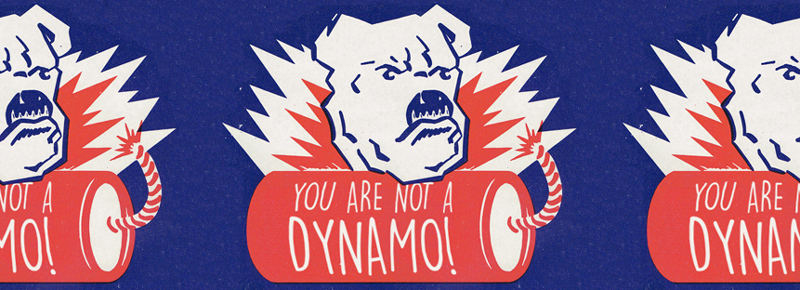Procrastination

I straighten up my desk, arrange the pens in their cup, empty the trash bin, scrub the coffee pot, even do some actual work.
But then I run out of excuses and finally read this Washington Post article, promising—once and for all—to explain why I procrastinate and how to stop. (You’ll see it was posted over two weeks ago. I put it off as long as I could.)
Unfortunately, as with most everything else I’ve ever read about procrastination, I’m underwhelmed. And, in my newfound knowledge, I somehow doubt that I’ve seen the last of the “instant gratification monkey” (if that amusing, folksy analogy is at all accurate).
Rather than getting back to work, however, I lean back in my chair and continue to ponder procrastination and, naturally, my thoughts turn to our methodology.
(As a disclaimer, I’m not aware of any “official” stance or research correlating 5 Dynamics to procrastination tendencies. These are just my musings, based on six years of immersion in the methodology.)
On the surface, it seems that procrastination would be most closely connected to low Execute Energy. However, 5 Dynamics does not in any way measure or predict competence; furthermore, we teach that low Energy in a Dynamic does not mean that you are incapable of getting things done in that area. On the contrary, you are equally capable of accomplishing tasks in that area as someone with higher Energy; you will just use more of your physical and mental energy reserves by doing so.
This is consistent with my own experience. Execute Energy is my second lowest at Deliberate+, which indicates that I do have to consciously decide to move into that Dynamic (but with a little less effort than it takes me to engage my Excite Energy, being a lower Deliberate.) However, my job demands that I be very efficient in clearing tasks from my list, so I am (most of the time). And, most of the time, I’m pretty wiped by the end of the day.
So maybe the key to understanding procrastination lies elsewhere.
We teach that low Energy in one area is most certainly balanced out by higher Energy in one or more of the other Dynamics. Rather than a lack of Energy (i.e., “motivation”) to Execute, perhaps procrastination comes from a stronger desire to remain in one of the earlier Dynamics rather than moving to Execute at the proper time.
By that logic, then, how you typically choose to procrastinate should line up with your higher Energies.
Are you high in Explore Energy? Then you might tend to procrastinate by seeking out new ideas, reading “just one more” article, letting your curiosity take you around another corner just to discover what there is to discover.
Are you high in Excite Energy? More often than not, you might tend to seek out other people when you need to procrastinate, like seeing who’s at the water cooler or coffee pot, checking the message boards, or calling mom “just because.”
Are you high in Examine Energy? You might procrastinate through logic, data and facts, making sure everything in your space is “just so,” going over the numbers one more time, proofreading that email a fourth time before pressing send.
Of course, one big assumption of my theory here so far is that those with high Execute Energy just don’t have a problem with procrastination at all, but somehow my skeptical Examine Energy doubts that. High Execute procrastinators are most likely those who tend to justify their delays by completing other important, but not as urgent, tasks first.
So, like many of those other procrastination articles I’ve read, I seem to have talked myself into a circle without getting any closer to understanding the “why” of procrastination. But, just maybe, why doesn’t matter; perhaps understanding how is sufficient to recognize when I’m procrastinating so that I can take steps to get back into process and on track.
You know, it occurs to me that, for someone high in Explore and Examine Energy like me, procrastination might look like delving into an interesting thought exercise, only to pick it apart and end up with no clear conclusion.
Ah, well. Back to work!


